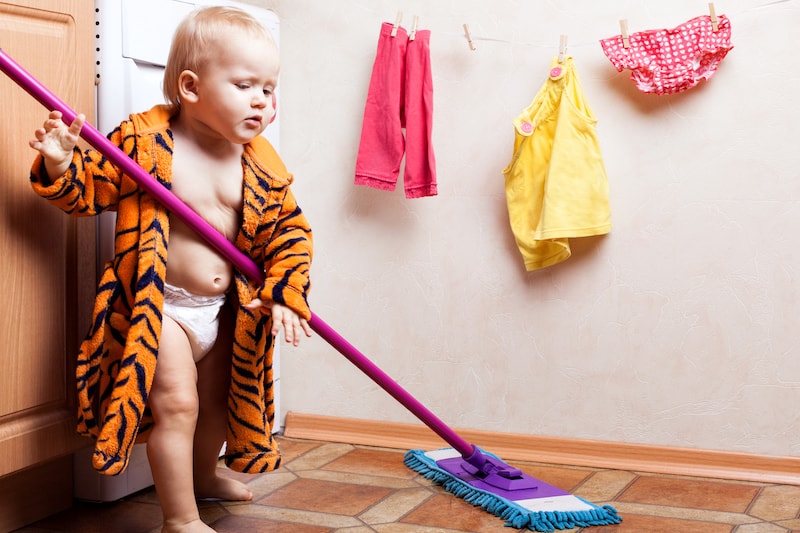Being a parent is a lifetime job.
You never stop being a parent. Even when your kids have left your nest, you think about them and worry about them.
Anyone can become a parent, but to be a good parent you need to acquire certain parenting skills and develop good qualities.
But don’t worry. No matter how further along you are on your parenting journey, you can still become a good parent. We all are ‘work in progress’ and there is always something we can do to bring about a change.
So, what makes good parenting?
As a parent, our duty is to help children develop into happy, independent and thriving adults. They must feel loved and know how to care for others.
Being a good parent doesn’t mean you have to be perfect. No matter how hard you try, you cannot be a perfect parent. There are always bad days. But for every bad day, remember, you can start over the next day.
Don’t shame yourself or ruminate over the parenting fails you have had. Get back up and try again. This journey is forever and our job is to get better and better over time, not in one day. Thus, forgive yourself for the mistakes you make.
When you forgive yourself, you find it easier to forgive the little mistakes your kids make too. And that helps to be more patient with them and set achievable expectations for them.
HERE ARE 12 GOOD PARENTING SKILLS TO BECOME A BETTER PARENT
1. LOVE YOUR CHILD
Does a parent need to be told to love his/her child?
No.
But your child should “feel” loved.
Tell them you love them every day. It’s not enough to do things for them. Telling them verbally helps to strengthen the secure connection they have with you. When they know they are loved by you, they trust you more.
They understand you are there for them no matter what happens in their life.
When you tell them “I love you” even after they make mistakes, it increases their self-worth because they understand they are valued not for what they do but who they are.
Feeling loved takes the fear out of the relationship and they feel courageous enough to turn to you for the challenges they face in life.
Express your love not only verbally, but in other ways too. Give them lots of hugs and kisses, enquire about their day, play silly made-up games with them. Express your love in whatever way you can-never hold it back.
There is nothing like ‘too much love’. Love can never spoil anyone. In fact, studies show that showering children with generous amounts of love and affection help them to become more independent and confident.
Love helps them to develop strong emotional and social skills because they feel more safe, and secure. When they are loved, they feel freer to express their feelings.
And it is exactly this safe and secure environment that a child requires to thrive.
The ability to express love is one parenting skill that all parents must acquire. The benefits are many. Love is free and well worth the investment.

2. BE A GOOD ROLE MODEL
Your children are watching you all the time. They learn more from your actions than your words.
Research published in Pediatric Institute Publications shows that babies and toddlers learn by observing adults and imitate them.
As mothers, we know from this experience, but it also means we are always watched. Therefore stop the habits that you don’t want your kids to learn.
It is tough to stop using swear words or stop yelling when that’s how you behave when you are angry. But part of becoming a good parent is having self-control. If you can’t control yourself when you are angry, don’t expect it from your child. Similarly,
If you don’t want your kids to lie, try to model being honest in your life.
If you want them to be kind and respectful of other’s feelings, show kindness and respect to them.
If you don’t want your child to yell at you or her siblings, don’t yell at them.
Ask yourself, how you want your kids to grow up to be. Try to model those behaviors and be consistent. It will help you become not only a better parent but a better person too.
3. MAKE TIME FOR CHILDREN
I know that making time is easier said than done. The question is, how do you make time for your children when you have so much to do in a day?
If you are short on time, focus upon carving some ‘quality time’ out of your schedule. Because as long as you are able to give undivided attention to them, they will be happy.
Here are some tactics to spend quality time with kids.
- Include them in your chores. This is a great way to get some quality time because children usually love to help. They are messy and slow, but you can make sure you fill their love tank.
- Schedule one-on-one time in your day no matter how busy you are. You get things done when you prioritize and schedule. Do the same with your kids because they are important. Have your own routine with them so that they can look forward to this quality time with you.
- Engage in their play. What I have observed is, kids absolutely love it when you join them in their play. Join them and pretend play. Be like a child and act silly, it is so rewarding to watch them laughing hard.
- If your kids are older, take them with you on your errands. You can share your day’s events and listen to their conversations.
- Spend less time in front of screens and gadgets. You can surely free some time this way and spend it to build a strong relationship with your kids.
- Try to be present for their important milestones. If you show up or not, they will remember it for life.

4. BE A GOOD LISTENER
Be it young kids or adults, we all have the basic need to “be heard”. We want our feelings to be understood and validated.
Imagine this conversation.
You: I am feeling so angry at my boss for making that nasty comment.
Your partner: There is no reason to be angry. You know that he is like that.
What would you feel when someone dismisses your feelings off just like that? You feel more angry and sad. You feel like your emotions have no value.
The same happens with children. They might be scared of darkness and they feel sad and angry over matters that look silly to adults. In short, they have all the feelings we have and more.
And as a mother, you are the center of her universe. When a child runs to you with her little problems, what she wants is ‘validation’. She wants to feel that she is always heard, that someone understands her feelings and not dismiss her off as being silly, and that she is valued.
When they come to you, give your full attention to them and actively listen to them. Avoid looking at your screens and make eye-contact.
Set aside a certain time in your day to talk with them. When they talk, affirm what they say and empathize with their feelings. Bedtime is a great time for asking about their day and for listening.
Kids may not always wait to talk about their problems. So when they come to you rushing, make an attempt to listen to them. Or if you can’t, excuse yourself and make sure you follow up with them after some time, when you can devote your full attention to them.
Do not dismiss your child’s feelings as silly. It might feel silly to you, but for them it’s big.
Related: 10 things every daughter needs from her mom
5. SET LIMITS
When I came to know about positive parenting I knew that’s how I want to raise my daughters.
Setting rules or limits is not bad. It doesn’t make you a bad person. Children need to understand limits. It teaches them the appropriate behavior and helps them grow up being responsible.
If you never set limits, they eat whatever they want, they watch TV all day long and play video games instead of going to bed.
The reason some parents don’t like to set rules is, they don’t want to make their kids mad or don’t want to deal with their frustrations. But remember, helping them to cope with their feelings is also part of good parenting.
As a good parent, you should raise them being able to deal with NO’s, as it will help them deal with the challenges later in adulthood.
Related: 4 types of parenting styles and their effect on child development

6. PRACTICE POSITIVE DISCIPLINE AND AVOID PHYSICAL PUNISHMENT
The method we choose to discipline kids has a lifelong effect. Therefore, it is ideal to resort to positive discipline methods than old-school techniques.
Positive discipline methods are based on respectfulness and are one of the qualities of a good parent. Authoritarian parenting focuses upon shaming the child for their misbehavior, whereas in positive disciplining, the focus is upon the child’s behavior, not on the child itself.
Physical punishments never help any child to genuinely understand their mistake. It only makes them avoid the source of punishment rather than not repeating the behavior again.
Also, spanking or other harsh discipline techniques make you a bad role model for them (see #2). What kids learn is, they can resort to violence if they are angry or someone misbehaves to them.
In positive disciplining, you make the child understand their mistakes gently and correct them in a firm and encouraging manner. You communicate with your child effectively and listen to their part too and focus on finding solutions that work for everyone.
Related: How to get started with positive parenting
7. BE CONSISTENT WITH RULES
Discipline can work only if you are consistent with it. So make no exceptions when your child tries to manipulate you with whining, begging or tantrums.
Being consistent helps the child to take the rules seriously because they know that “you mean business”. Make sure you discuss the rules with your partners and caregivers in order to be consistent.
It’s confusing for children when everyone has different rules and they are smart enough to negotiate with the other parent.
Instead of keeping on reminding the consequences repeatedly, follow through them once the limit is reached.
Also, setting too many rules can be hard for you as well as your kids because it is tiring for them to follow many rules and for you to follow through the consequences.

8. BOTH PARENTS SHOULD WORK TOGETHER
If both parents are on the same boat with parenting methods, it becomes easier. But usually, there are differences between parents which is normal. And if grandparents are also in the picture, there can be more differences in opinion.
The differences in opinion regarding raising children should always be sorted in your child’s absence.
It is confusing for your child when one parent says “YES” and the other says “NO”. When setting rules, discuss it with your partner and other people in the house. It helps children to stick to the rules.
9. HELP YOUR CHILD BECOME INDEPENDENT
Sometimes we forget that our kids have reached the age where they can do certain tasks themselves. You want to raise an independent child, there is no doubt about it.
But for that, you need to stop doing things that they themselves can do. Give them age-appropriate responsibilities that they can handle. It will increase their self-esteem.
Don’t let guilt come your way when you want to make them do their chores. Tell yourself and your kids, as a good parent, how it’s your responsibility to teach them to look after themselves.
Even if they whine now, they will be thankful to you later when they realize they are equipped with all the necessary survival skills.
Unless it’s absolutely necessary for you to intervene, let the child make his own decisions. Even if they make mistakes show them that you have their back and this will make them fearless and try new things in life.
Don’t try to always protect them by hovering around them all the time. Give them guidelines and trust their decisions.
Related:
- 20 basic social skills all kids must learn (and how to teach them)
- List of age-appropriate chores for kids (from toddlers to teenagers)

10. PRACTICE PATIENCE
Patience is one of the skills that help us to face daily challenges as a parent.
Many of us are quick to snap and yell at our kids when we have to keep repeating the same thing for the umpteenth time.
It’s normal to lose patience when are stretched too thin, but if you are quick to get angry it can have a negative impact on your kids. You are not able to acknowledge their feelings or empathize with them to help them deal with their emotions.
In fact, if you are not able to deal with your emotions in a mature way, then you can’t expect kids to learn it. Moreover, you are passing on the same lack of self-control onto them.
Here are some tactics to practice patience in the heated moments and in general:
- Take deep breaths
- Stop and count to ten
- Take time-out for yourself, relax, plan the words in your head before responding to kids
- Always visualize yourself being a patient mother (it really helps)
11. ESTABLISH ROUTINES FOR KIDS
I am a big advocate of setting routines for kids and myself. I thrive on planning and routines.
From my experience, having a routine helps to get co-operation from kids easily. Since you are repeating the same schedule over and over again, they get accustomed to it and do not protest. When it’s bedtime, they know there is no other go around it.
Having routines also means fewer power struggles. Another benefit is, kids get proper sleep and they are happier (poor sleep=cranky kids=frustrated mama)
12. SELF-CARE
When you become a mother, everything in your life takes a back seat. Your kids’ needs come first before your own desires.
Depending upon the age of your kids, take time out for self-care. Even if it is a 10-15 minutes a day for meditation, or to read a book or an hour to catch up with your girlfriends, make time for the luxury.
You can make the necessary arrangement to look after your kids during this time by asking your spouse or a grandparent, or if possible, a babysitter.
A guilty mom can’t function at her best, but a happy mom can. Make time for yourself, you are important.
Related: 15 self-care activities for busy moms to stay sane
If you love what you are reading, please take a moment to PIN and SHARE!

